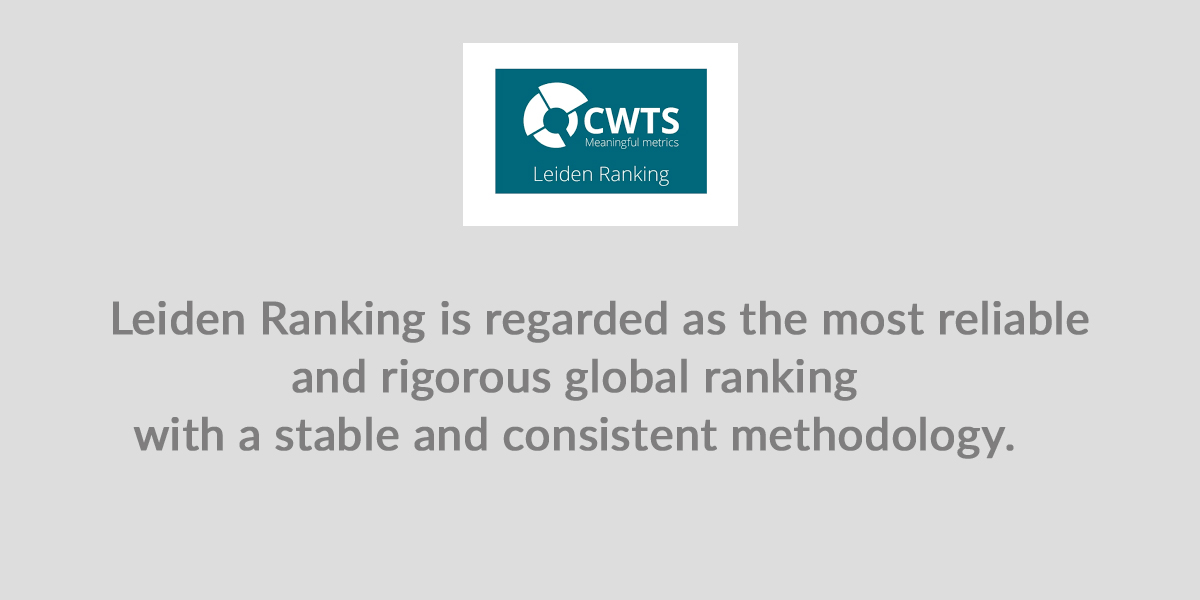The CWTS Leiden Ranking is published by the Centre for Science and Technology Studies (CWTS) at Leiden University, Netherlands. It provides tables of publications by universities including data on collaboration, open access, and gender equity. All metrics are based on objective and publicly accessible data. The latest edition was released on October 29th, 2025.
The publication data is derived from articles and reviews in core journals in the Web of Science database, including the Science Citation Index Expanded, the Social Science Citation Index, and the Arts and Humanities Citation Index. Tables can be adjusted for field, country, fractional counting, and minimum number of publications.
Leiden Ranking is regarded as the most reliable and rigorous global ranking with a stable and consistent methodology. It maintains a clear distinction between size-dependent and size-independent metrics.
This year there are two sets of rankings, traditional and open. CWTS have indicated that eventually the open edition will become the primary ranking in line with their commitment to open research.
Comparing the traditional and the open rankings indicates that universities in North America do better in the open edition, In the publications table, Harvard is third in the traditional ranking, after Zhejiang and Shanghai Jiao Tong, but is first in the open ranking, and the University of Toronto goes from tenth to seventh. In contrast, Zhejiang, Universidade de São Paulo, and Seoul National University do less well.
The new ranking has led to a substantial increased in the number of ranked universities in Southeast Asia. There are two Bangladeshi, nine Thai, five Indonesian, and no Philippine universities in the traditional ranking compared to thirteen Bangladeshi, sixteen Thai, twenty-five Indonesian, and five Philippine universities in the open rankings.
Source:
CWTS Leiden Ranking

